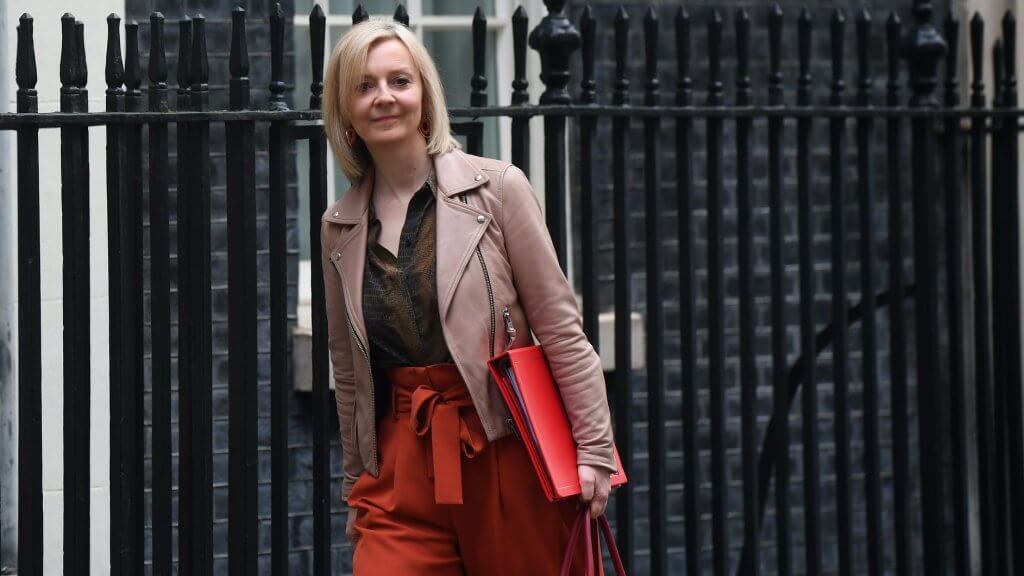Liz Truss Bemoans ‘Defensive’ Trade Attitude Caused By EU Membership

Some businesses and government employees remain “defensive” about trade as a result of the UK spending nearly 50 years in the European Union, the International Trade Secretary has said.
In a speech on Tuesday Liz Truss set out how the UK’s post-Brexit trade strategy will be increasingly about attempting to secure business with eastern growth markets in India and elsewhere.
“In order to get those opportunities, we do have to jettison some of our outdated assumptions and attitudes,” she added.
When later asked to elaborate on her comment, Ms Truss said: “We have spent 50 years in the EU and it is natural that, whether it is business, whether it is people employed by the Government and others, there are certain ideas that have been shared and promulgated and are still present in some quarters.
“What I want to do is move from the defensive mindset which says ‘what do we lose’ to the offensive mindset which is saying ‘here is what we can gain’.
“Sometimes there can be a lack of self-belief.”
Addressing the Policy Exchange think tank, the International Trade Secretary said that Britain faced a choice between embracing opportunities in growth markets or staying “in our comfort zone”.
Ms Truss said “protectionism” would not protect living standards and trade was needed to curb rising inflation “through the power of economic openness”.
When asked where the Government drew the line between trade and human rights in relation to China, she said the country was “a very important trading partner”.
But the Cabinet minister said trade with China must be “reliable, stable and in accordance with international rules”.
“I talked about how important it is that the trade we do underpins our values of free enterprise and democracy,” Ms Truss added.
The Department for International Trade’s Global Trade Outlook report, published on Tuesday, has found that the “centre of global economic gravity is moving away from Europe” and heading towards the Indo-Pacific.
LIVE NOW: Today @trussliz outlines the changes that will shape the global economy for the coming decades…
…and explains how we’ll ensure the UK seizes the opportunities ahead.
Watch it live: https://t.co/JMhqAxdDIs pic.twitter.com/5QX7AWE3Yn
— Department for International Trade (@tradegovuk) September 14, 2021
By 2030, three of the four largest economies in the world will be in the Indo-Pacific region, the report forecasts, with the region set to account for 56% of global GDP growth and 44% of global import demand growth over the next 30 years.
Alongside that, global demand for British digital and financial services is expected to double in the next decade, with demand for digital services calculated to grow by 117%, the department said.
Ms Truss said: “We are building a global network of next generation trade deals that are advanced in services and digital trade, and forge closer economic ties with markets in east Asia and the Asia-Pacific.”




